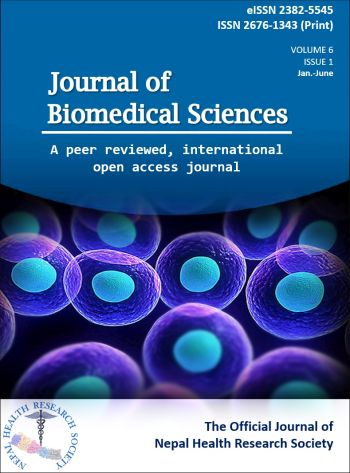通过累积 DNA 损伤,SUMOylation 和 MEK 双重抑制剂可战胜 MYC 表达的 KRAS 突变癌症
IF 9
2区 医学
Q1 CELL BIOLOGY
引用次数: 0
摘要
KRAS 突变经常发生在癌症中,尤其是胰腺导管腺癌、结直肠癌和非小细胞肺癌。虽然 KRASG12C 抑制剂最近已获得批准,但针对所有 KRAS 突变癌症的有效精准疗法尚未确立。许多针对 KRAS 突变癌症的治疗方法,包括表观基因组靶向药物,目前都在研究之中。小泛素样修饰蛋白(SUMO)是一种小蛋白家族,它们在细胞中通过称为 SUMOylation 和 de-SUMOylation 的过程与其他蛋白共价连接或脱离。我们评估了抑制 SUMOylation 是否对 KRAS 突变癌细胞有效。我们在多个人类和小鼠 KRAS 突变癌细胞系中评估了第一类 SUMO 激活酶 E 抑制剂 TAK-981 (subasumstat)的疗效。使用 TaqMan 阵列进行基因表达检测,以确定 TAK-981 疗效的生物标志物。通过免疫印迹分析、免疫荧光测定和小鼠模型研究了SUMO酰化抑制的生物学作用和后续调控机制。我们发现,TAK-981能下调目前无法治疗的MYC的表达,并有效抑制不同组织类型中表达MYC的KRAS突变癌症的生长。此外,TAK-981耐药细胞通过表达MYC对SUMO酰化抑制敏感。TAK-981 通过改变 SUMOylation 和泛素化之间的平衡,促进 MYC 与泛素-蛋白酶体系统中的关键因子 Fbxw7 的结合,从而诱导 MYC 蛋白酶体降解。TAK-981单药疗法在使用小鼠衍生CMT167细胞系的免疫功能健全和免疫缺陷小鼠模型中的疗效显著,但并不明显。由于抑制 KRAS 下游通路的 MAPK 对 KRAS 突变癌症至关重要,我们预计联合抑制 SUMOylation 和 MEK 可能是一个不错的选择。令人惊讶的是,TAK-981和曲美替尼联合治疗能显著诱导多种细胞系和基因工程小鼠器官组织的细胞凋亡。此外,在使用不同组织类型细胞系的小鼠模型中,联合疗法可使肿瘤长期消退。最后,我们发现联合疗法能互补性地抑制 Rad51 和 BRCA1,并累积 DNA 损伤。我们发现,在 KRAS 突变癌细胞中,MYC 的下调是通过 SUMOylation 抑制实现的。我们的研究结果表明,SUMOylation 和 MEK 的双重抑制可通过增强 DNA 损伤积累来治疗表达 MYC 的 KRAS 突变癌症。本文章由计算机程序翻译,如有差异,请以英文原文为准。
Dual inhibition of SUMOylation and MEK conquers MYC-expressing KRAS-mutant cancers by accumulating DNA damage
KRAS mutations frequently occur in cancers, particularly pancreatic ductal adenocarcinoma, colorectal cancer, and non-small cell lung cancer. Although KRASG12C inhibitors have recently been approved, effective precision therapies have not yet been established for all KRAS-mutant cancers. Many treatments for KRAS-mutant cancers, including epigenome-targeted drugs, are currently under investigation. Small ubiquitin-like modifier (SUMO) proteins are a family of small proteins covalently attached to and detached from other proteins in cells via the processes called SUMOylation and de-SUMOylation. We assessed whether SUMOylation inhibition was effective in KRAS-mutant cancer cells. The efficacy of the first-in-class SUMO-activating enzyme E inhibitor TAK-981 (subasumstat) was assessed in multiple human and mouse KRAS-mutated cancer cell lines. A gene expression assay using a TaqMan array was used to identify biomarkers of TAK-981 efficacy. The biological roles of SUMOylation inhibition and subsequent regulatory mechanisms were investigated using immunoblot analysis, immunofluorescence assays, and mouse models. We discovered that TAK-981 downregulated the expression of the currently undruggable MYC and effectively suppressed the growth of MYC-expressing KRAS-mutant cancers across different tissue types. Moreover, TAK-981-resistant cells were sensitized to SUMOylation inhibition via MYC-overexpression. TAK-981 induced proteasomal degradation of MYC by altering the balance between SUMOylation and ubiquitination and promoting the binding of MYC and Fbxw7, a key factor in the ubiquitin–proteasome system. The efficacy of TAK-981 monotherapy in immunocompetent and immunodeficient mouse models using a mouse-derived CMT167 cell line was significant but modest. Since MAPK inhibition of the KRAS downstream pathway is crucial in KRAS-mutant cancer, we expected that co-inhibition of SUMOylation and MEK might be a good option. Surprisingly, combination treatment with TAK-981 and trametinib dramatically induced apoptosis in multiple cell lines and gene-engineered mouse-derived organoids. Moreover, combination therapy resulted in long-term tumor regression in mouse models using cell lines of different tissue types. Finally, we revealed that combination therapy complementally inhibited Rad51 and BRCA1 and accumulated DNA damage. We found that MYC downregulation occurred via SUMOylation inhibition in KRAS-mutant cancer cells. Our findings indicate that dual inhibition of SUMOylation and MEK may be a promising treatment for MYC-expressing KRAS-mutant cancers by enhancing DNA damage accumulation.
求助全文
通过发布文献求助,成功后即可免费获取论文全文。
去求助
来源期刊

Journal of Biomedical Science
医学-医学:研究与实验
CiteScore
18.50
自引率
0.90%
发文量
95
审稿时长
1 months
期刊介绍:
The Journal of Biomedical Science is an open access, peer-reviewed journal that focuses on fundamental and molecular aspects of basic medical sciences. It emphasizes molecular studies of biomedical problems and mechanisms. The National Science and Technology Council (NSTC), Taiwan supports the journal and covers the publication costs for accepted articles. The journal aims to provide an international platform for interdisciplinary discussions and contribute to the advancement of medicine. It benefits both readers and authors by accelerating the dissemination of research information and providing maximum access to scholarly communication. All articles published in the Journal of Biomedical Science are included in various databases such as Biological Abstracts, BIOSIS, CABI, CAS, Citebase, Current contents, DOAJ, Embase, EmBiology, and Global Health, among others.
 求助内容:
求助内容: 应助结果提醒方式:
应助结果提醒方式:


